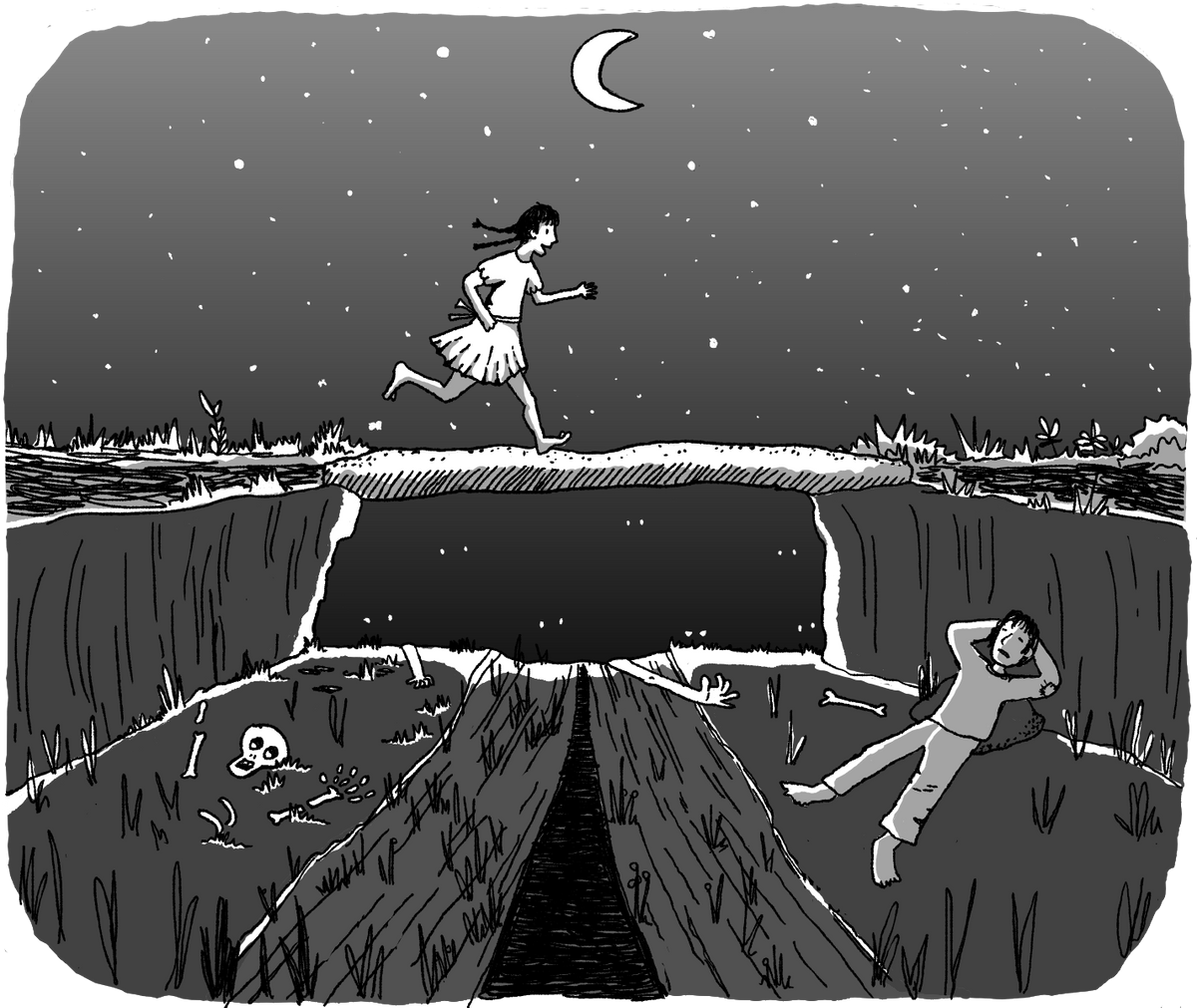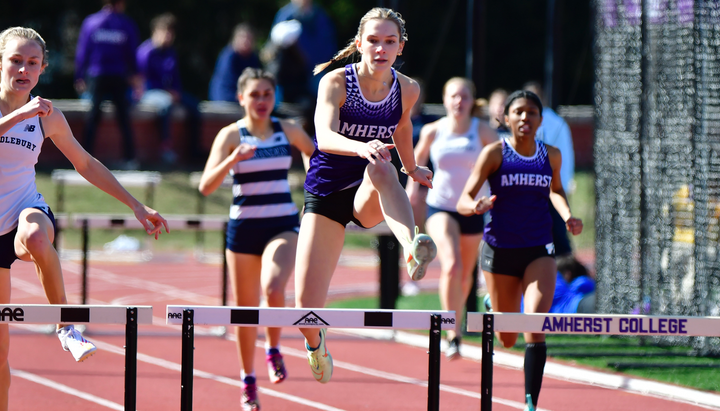The Indicator x The Student: “(Night)Blind”
Managing Opinion Editor Tapti Sen ’25 reflects on a childhood conversation with her mother in this piece, originally published in the Fall 2022 edition of The Indicator.

“রাতকানা” she calls them,
the fools who would return home too late,
trampling over paddy fields and marshy soil
feet caked just enough to miss awaiting rough cement
where they would stumble, fall sideways, into the awaiting trench.
But wouldn’t they see in the moonlight?
Silly girl! They’re রাতকানা! It’s in the word itself.
But why wouldn’t they all walk back together? So no one would fall in?
She shakes her head — you forget, in the old days, we ended with sundown.
Most people left before the day grew dark.
My curious expression: “Except you?” Her cast-aside smile.
“Look! There it is,” she points out the window of the car.
Staring dubiously, “that’s not a bridge,” for does a slab of cement,
balanced precariously over two shorter slabs, deserve to be called anything?
Nostalgia clear in her face, musingly, we slow down —
Well, it has run-down a bit, of course, but haven’t we all?
I stare back at those concrete slabs, out of place in the overwhelming greenscape
and wonder: “What happened to the men who fell?”
Some would make the journey back at dawn,
after a good night’s rest among the dewdrops and grass,
others would be found by worried mothers and wives,
and some — we used to say they were “lost to the night.”
“Lost?” “They were never seen again.”
I dart another glance at that concrete slab,
neck craning with a 12-year-old’s joyful morbidity,
to see a rotting corpse — or at least weathered-down human remains!
But alas — there was nothing so exciting in that gentle grass.
We used to run every time we crossed that bridge to run home, she says,
lest we get eaten by whatever remains. Or whoever.
Why didn’t you just take another path?
“Where’s the fun in that?” she laughs — but,
“Weren’t you afraid?” She watches me,
fondness evident in her gaze, “Every time.”
I glance back at that bridge falling far behind us
and try to imagine that girl, twin braids bouncing,
mud-splattered frock, running barefoot over coarse cement,
friends and cousins egging her on, and that smile —
that eager youth freezes in time, in my mind for
an instant, and vanishes, shifts, brains to bun, skirt to sari
into an older frame, warmer and wearier, a woman that I
know all too well, or think I know, or wish I knew.
“Feel like reliving childhood memories?”
Voice catching, yearning unsaid: please tell me more,
I want to know you, as you are now, as you were then —
My mother shakes her head, “I’m probably রাতকানা too now.”




Comments ()